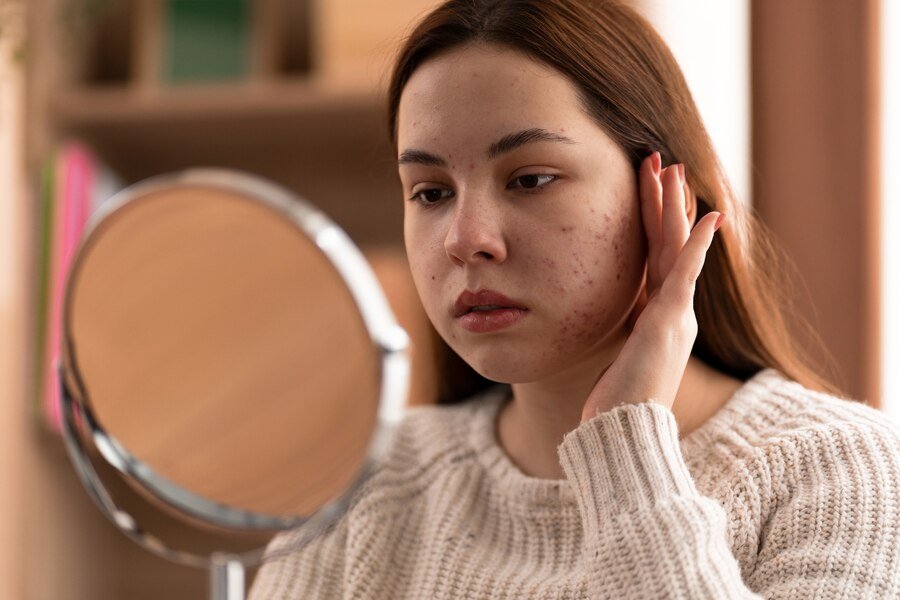Acne is an inflammatory skin condition where the hair follicles that are connected to the sebaceous (oil) glands get clogged. Acne is common in teenagers but it may persist in older years, depending on the severity and the condition of the skin.
It mostly occurs on the skin but you can get acne on the back, chest, and shoulders.
WHAT CAUSES ACNE?
Research so far shows that at least one or more than one of the following factors can cause acne:
- Excess or high production of sebum (oil) in the pores.
- Buildup of dead skin cells in the hair follicles.
- Growth of bacteria or inflammation in the pores.
TYPES AND SYMPTOMS OF ACNE
Acne causes multiple types of pimples or lesions. Following are the types and signs of acne:
Whiteheads
These are white bumps that are caused by clogged hair follicles, right beneath the skin.
Blackheads
These are black on the surface of the skin, caused by plugged follicles that reach the surface of the skin and open up.
Papules
These are small, pink bumps that are actually inflamed lesions on the skin.
Pustules or Pimples
These are papules but with pus-filled lesions on top that may appear red on the skin.
Nodules
These are big, painful and hard lesions that are blocked deep within the skin.
Severe Nodular Acne
This is also referred to as cystic acne. This involves deep, painful, pus-filled lesions.
HOW TO PREVENT ACNE?
A dermatologist will prescribe medication and acne treatment as per your condition. However, they will also give you prevention tips to practice at home or by yourself. These include:
- No picking or popping your pimples and zits
- Wash your face and keep it clean throughout the day
- Avoid touching your face
- Have a healthy diet and take less stress


